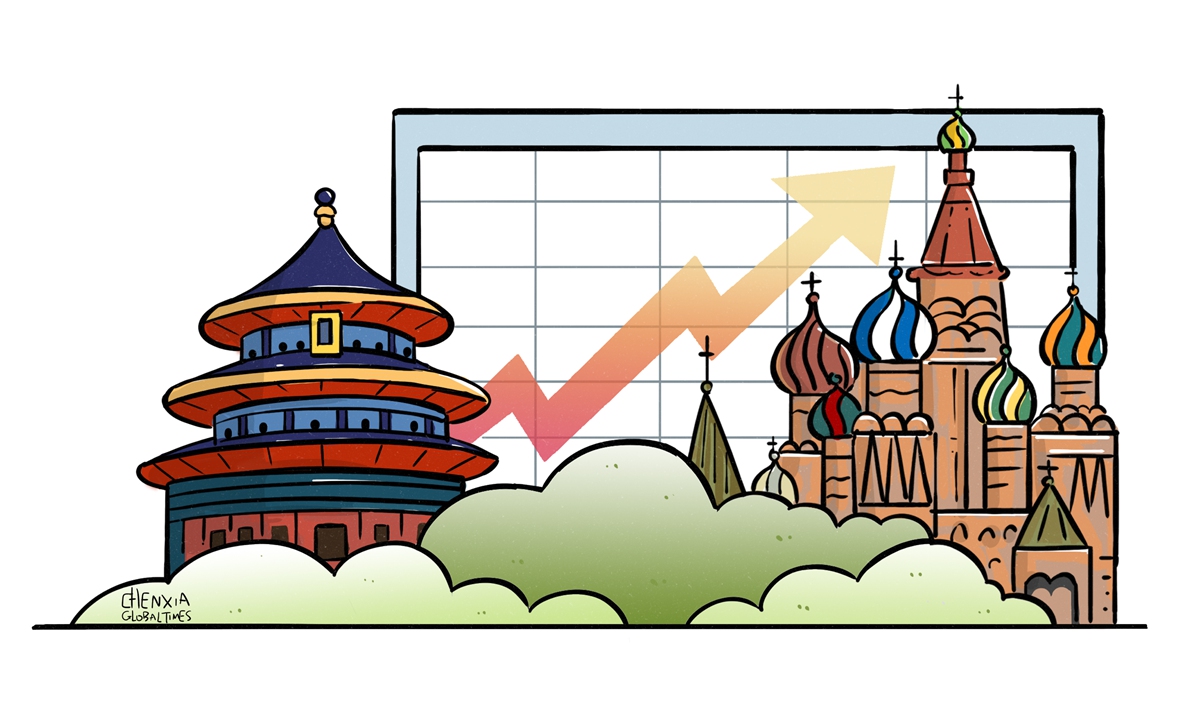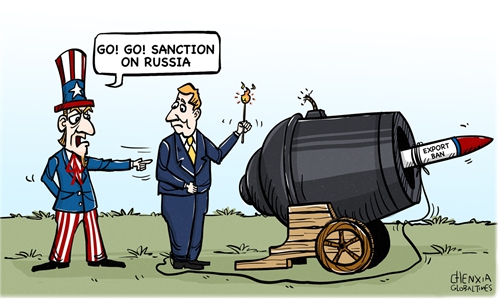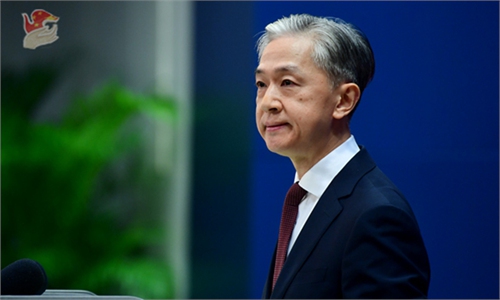
Illustration: Chen Xia/Global Times
China's exports and imports with Russia reached $73.15 billion in the January-April period, Chinese customs data showed on Tuesday. Against the backdrop of Western sanctions against Russia, trade growth between China and Russia has gained massive attention from the outside world.The US-led West is currently imposing massive and unprecedented sanctions against Russia and is trying to rope more countries into its clique. Given this, it's not surprising that Western opinion has been accusing China over its normal trade with Russia. However, it should be pointed out that unilateral sanctions against Russia have not been approved by the UN, therefore are illegal under international rules. The US, regardless of how powerful the country is, does not represent the entire international community, and has no authority to order other countries to comply with its illegal unilateral sanctions. No matter whether the trade between China and Russia increases or decreases, as long as it's in line with international rules and the needs of both sides, the US-led West will be in no position to point fingers at the normal economic cooperation between China and Russia.
Russia's significance in the global economy is tied to its role as a major energy and grain producer and exporter. The country is reportedly the world's largest exporter of natural gas and one of the largest exporters of oil. What would be the consequences if Russia were partly isolated from the rest of the global economy? Energy and grain prices would rise and inflation would spike, which is what the world economy is currently experiencing. The dire consequences of illegal unilateral sanctions have been paid by not only Russia but also many other countries and global industries. In this process, who are beneficiaries? The answer is simple: the US. According to media reports, the US is surpassing Russia as Europe's top energy supplier, as US energy giants increase natural gas exports to Europe to replace Russian fuel.
This is a testing time of uncertainty and change amid a gloomy economic outlook. In the face of a disruption in global energy and food supply chains, stubborn inflation, and the current financial uncertainties, what the world needs is not illegal unilateral sanctions, but normal economic cooperation. As two major powers neighboring each other, China and Russia have always enjoyed sound and mutually-beneficial economic cooperation, which is a positive asset for both countries and for the stability of the global economy, as it brings more certainty to the international community and global supply chains.
Trade expansion between China and Russia is the natural result of the economic complementarity of the two countries.
Some analysts said due to geopolitical tensions, Russia is channeling energy exports to the Asia-Pacific area, including China and India. Meanwhile, China's mechanical and electrical goods have become a rising major export category to Russia, at a time when some Western companies withdraw from the Russian market.
There is little doubt that China-Russia economic and trade cooperation will continue to develop. China-Russia economic cooperation does not tolerate any third party's interference or coercion. The US must not harm the legitimate rights and interests of China and other parties when handling the Ukraine issue and its relations with Russia.
It has been reiterated by Chinese officials on many occasions that China-Russia relations are built on the basis of non-alliance, non-confrontation and non-targeting of third countries, featuring mutual respect, mutual trust and mutual benefit. Many historical experiences have proven unilateral sanction does not help in solving problems, but instead often makes the situation more intractable. China-Russia economic cooperation does not pose a threat to any third country. Trade expansion between China and Russia is beneficial to the stability of the global economy, especially against the backdrop of the current complex and difficult situation of the world economy.
The author is a reporter with the Global Times. bizopinion@globaltimes.com.cn



